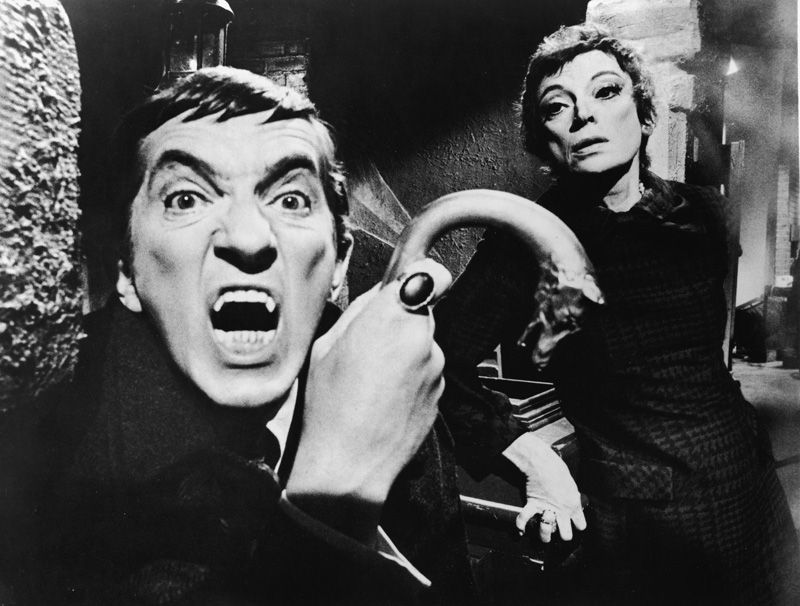
Barnabas Collins, in the 1960s soap opera “Dark Shadows,” may have been the first conflicted vampire in popular culture.
Right about the time that my late husband was diagnosed with terminal stomach cancer, I started obsessing on vampire novels. There I was, sitting by my husband’s bedside, pondering mortality, and reading these novels—270 by the end.
A couple of months into this, I started asking larger questions: Why have vampires had such traction in our culture? Why had Hollywood spent $7 billion over a couple of years on vampire films and television shows? My exploration resulted in my book: “Vampires Are Us: Understanding Our Love Affair with the Immortal Dark Side,” published by Weiser in February. What I now understand is that underneath the sexual glamour of modern vampires is an exploration of morality, power and its abuses.
Marx and Engels used “vampire” to describe the capitalist class
While I was looking into this, I noticed how often vampires were used as images in the Occupy Wall Street demonstrations I was reporting on. I also noticed that journalists writing about the economic crisis often used vampire imagery. The Huffington Post described a piece of new data as “like a single ray of sunlight—it’s already enough to make the vampires scream.” I saw a cartoon of someone putting a stake in the heart of a Wall Street trader. Voltaire wrote that vampires were not real, but there were men of business “who sucked the blood of the people in broad daylight.” And Marx and Engels both used the word “vampire” to describe the capitalist class.
Modern vampire novels are often about power and strategy. One day, I came across a professor who said, “You know, almost every good vampire film and novel asks this question: Now that we are at the top of the food chain, do we treat humans as cattle, or, since we were once human, do we treat them with respect?” How different is that, she said, than the questions we face every day. How do we treat someone with less money, power and status? Does might make right?
By the end of my four-year obsession, I decided that vampires simply reflect the fears and concerns of any age. And today’s vampires, from the Cullens in “Twilight” to Angel and Spike in “Buffy,” are struggling to be moral despite being predators. As are we. Our struggle is over our complicity in sucking the lifeblood out of the planet. The first truly conflicted vampire was Barnabas in “Dark Shadows,” who appeared right before we first saw the earth from space. We saw, for the first time, our vulnerability, responsibility and moral complicity.


